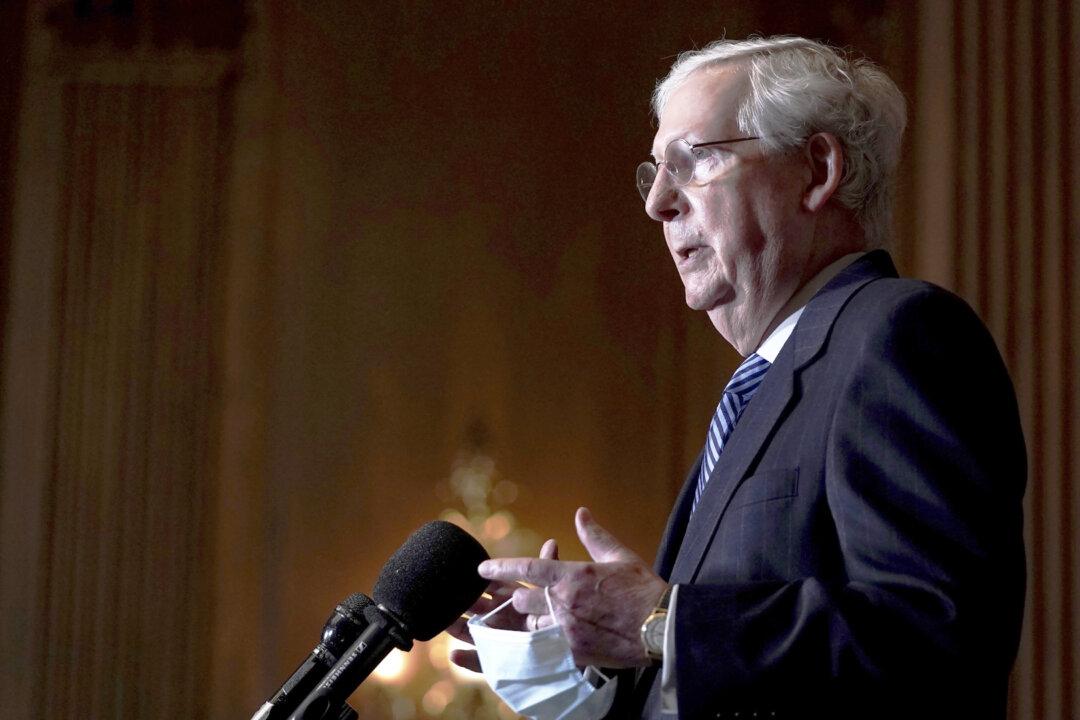Republican leaders in Congress on Tuesday said they back a COVID-19 relief package from the White House that includes $600 direct payments.
House Minority Leader Kevin McCarthy (R-Calif.) said he and Senate Majority Leader Mitch McConnell (R-Ky.) would support a $916 billion package put forth by President Donald Trump’s top negotiator.





